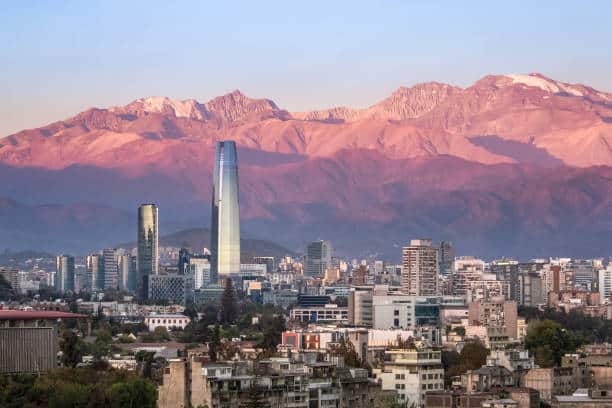Situated on a long and narrow strip on land in the western part of the South American continent is Chile, a country that is attracting a number of people from different parts of the world, for business. Indian businesses too, are testing Chilean market grounds in different areas. And this is because the country offers a good business environment, helpful government support and technological proficiency.
According to Gerardo Alonso Velasco Baratawidjaja, president of the Chile-ASEAN Chamber of Commerce. “Chile offers a stable, smaller market to pilot, test, and grow products and services, alongside a savvy and friendly business environment, and a competitive consumer landscape [where many have] disposable income.”

Many Indian businesses have flourished on Chilean soil. Noteworthy amongst them being, Live Green Company (LGC), a foodtech startup, found in 2018, that creates healthy, plant-based foods with the use of artificial intelligence, biotechnology, and machine learning. Free trade agreements and retail market similar to the United States, helped the startup benefit immensely. They then expanded to their capital Peru, and from there relocated to the Unites States.
Another Indian startup that benefitted from this Andean country is DispatchTrack that bought the Chilean Beetrack to expand its logistics technology in the Latin American region. With more than 60 million deliveries each year for customers round the world, DispatchTrack expanded its global presence, adding over 850 clients in 20 Latin American countries, including Chile, Peru, Argentina, Colombia and Mexico.
According to Indian entrepreneurs, India and Latin America, specifically Chile, have the same slacks in the market, thereby providing a similar business atmosphere, allowing their business solutions to be equally adopted and accepted.

Another way of staying put and settling in Chile is companies acquiring national companies, like Indian agrochemical giant UPL, which bought the Chilean company IngeAgro in September 2020. This helped them test markets, earn and gain acceptance easily.
However, a few entrepreneurs are not just eyeing entry and expansion into the North American continent. For example, 24-year-old Robin Kanattu Thomas, from Kerala, who through an accelerator program- StartUp Chile, brought his prosthetics and injury rehabilitation firm, Astrek Innovations, to Santiago in 2019, sees Chile as a gateway to Latin American customers. Though receiving help from Startup Chile has been welcoming, the support from his co-founders was more valuable, especially since he was young, and they knew the ways of the market. Though the pandemic forced him to return to India, he is still in contact with the authorities and people there, who are helping him secure licenses for his products.
Same goes with Asha Joshi, whose language learning platform Thinkin is headquartered in Chile. According to her, “Startups are highly respected in Chile and we see that in the large number of students who beta-tested our technology and still help us improve the backend.” The country’s underserved markets are more attractive due to stable regulatory environments and government support.
And due to these reasons, reasons, not only startups, but also large companies, such as Tata Consultancy Services, Infosys, Polaris Group and ManageEngine, the enterprise IT branch of the Indian giant Zoho Corporation, have set shop in Chile.

In spite of its size and geographic isolation from the rest of Latin America, Chile, nicknamed “Chilecon Valley” ranks among the top
startup hubs in the region, and in 2019, it was considered Latin America’s most innovative country. Their seed accelerator program- Startup Chile, that was created by their government not only welcomed global entrepreneurs to set up their businesses in Chile but also built Chile’s FinTech ecosystem in the process with more than 75 fintech startups operating in this South American country.
With so much happening in Chile, why wouldn’t startup entrepreneurs want to test their markets in a bid to expand or start their business?
















